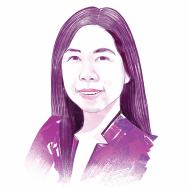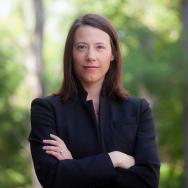Theresa Brown had been a nurse for almost a decade when she learned she had breast cancer. The University of Chicago alum had even worked in oncology, treating cases far more dire than her small and very treatable tumor. With all that experience, she thought she knew what to expect as a cancer patient.
But, as Brown writes in her new memoir Healing: When a Nurse Becomes a Patient, she had no idea what it’s really like when the life you are trying to save is your own.
“My sense of what health care was like as a nurse,” Brown said, “was just wrong.”
There was no one problem, no grievous medical error or cruel remark. Instead, what Brown found was mundane indifference to her suffering. “There was so little kindness, so little compassion, so little organization, so little sense of ‘OK, we’ve got this,’ so little good communication,” she said.
As a nurse she thought she could fill the gaps in the system by working harder, but as a patient, she saw just how wide and frequent the gaps can be. It’s a problem without an easy solution, but she believes nonprofit hospitals and some form of universal health care coverage would allow for better and more humane care.
When Brown, AB’87, PhD’94, was first diagnosed, she assumed someone would sit her down and explain her prognosis and treatment options—“you know, like in a movie or a TV show, when people get a cancer diagnosis. Yeah, that never happened. And I don’t know that it actually does.”
It was an early sign of troubles to come: Throughout her treatment, Brown found herself having to coordinate her own complex treatment and jockey for attention in an overburdened system. She tried to be the ideal patient—an agreeable and passive vessel for her providers’ wisdom—because she knew from experience that easy patients tend to get the best care. But in her fear and exhaustion, she also became an occasional squeaky wheel, taking to Twitter to complain about delayed mammogram results and trying to use personal connections to get an earlier appointment with a medical oncologist.
Healing is by far Brown’s most personal book, but it carries forward themes she explores in her first two, Critical Care: A New Nurse Faces Death, Life, and Everything in Between (2010) and The Shift: One Nurse, Twelve Hours, Four Patients’ Lives (2015). In these and in her frequent contributions to the New York Times, Brown writes about medicine as a human endeavor prone to human failings: ego, inattention, pettiness. Yet she never loses sight of the potential for good care to heal patients physically and mentally.
Her belief in the power of health care has made her an advocate for all kinds of improvements to it, both systemic and cultural. In 2009, shortly before the Affordable Care Act was introduced to Congress, Brown wrote an article about one of her leukemia patients, a man in his 60s, who spent the last three months of his life worried about the medical debt he would leave his wife.
“My patient thought he had planned well for his health care needs,” she wrote. “He just never thought he would wake up one day with a diagnosis of leukemia. But which of us does? And that’s why we need health care reform.”
That piece earned Brown an invitation to the White House to meet President Barack Obama, who quoted from her article in a speech at a nurses’ event supporting health care reform.
She has also highlighted a pervasive culture of bullying that is widely recognized within medicine and persists—Brown recalls early in her career learning the adage “nurses eat their young.” The cruelty flows freely: doctors bully nurses and veteran nurses bully junior ones (and even, on occasion, inexperienced doctors).
Brown’s decision to air the health care system’s dirty laundry hasn’t always been popular among her colleagues, but she came to see the constant backstabbing as “a threat to quality care.” She remembers a doctor blaming her, unfairly and in front of a patient, for a late test result. The frustration left her distracted for several hours—hours in which she could easily have made a mistake that would harm a patient.
Brown’s capacity for critical distance from her profession stems, in part, from her first career teaching English at Tufts University and MIT. (In fact, the feminist and post-colonial theory she read at UChicago shaped her perspective on bullying in medicine and helped her navigate environments where “certain people aren’t allowed to speak and certain people are allowed to behave badly.”) She enjoyed teaching, but always felt like something was missing—a sense, as she describes it, “of rubbing elbows with life.”
Her awe at the midwives who treated her during a complicated pregnancy, along with encouragement from a friend, spurred her to consider nursing as a career. After several years of chipping away at science prerequisite courses, she enrolled in an accelerated bachelor of science in nursing program at the University of Pittsburgh. She worked in hospitals as an oncology nurse before switching to home hospice work. And, in a full-circle turn, she began teaching nursing.
COVID-19 brought into stark relief the challenges facing nurses that Brown has long tried to call attention to in her writing. In the first year of the pandemic alone, 1,154 nurses died from COVID-19. Many left the profession, buckling under the strain of treating more patients with fewer resources, only to watch them die. Brown herself took a break from clinical work during the pandemic—she is still taking the chemotherapy drug Tamoxifen, and the risks of frontline work felt too great.
But more and more she finds herself thinking about returning, despite all the challenges nurses continue to face. “I don’t miss all the mess and being pulled in five places at once,” she said. Still, “I do really miss it. I do.”
—This story was first published by UChicago Magazine. For more, read an excerpt from Brown’s book.
Photo by Heather Kresge

